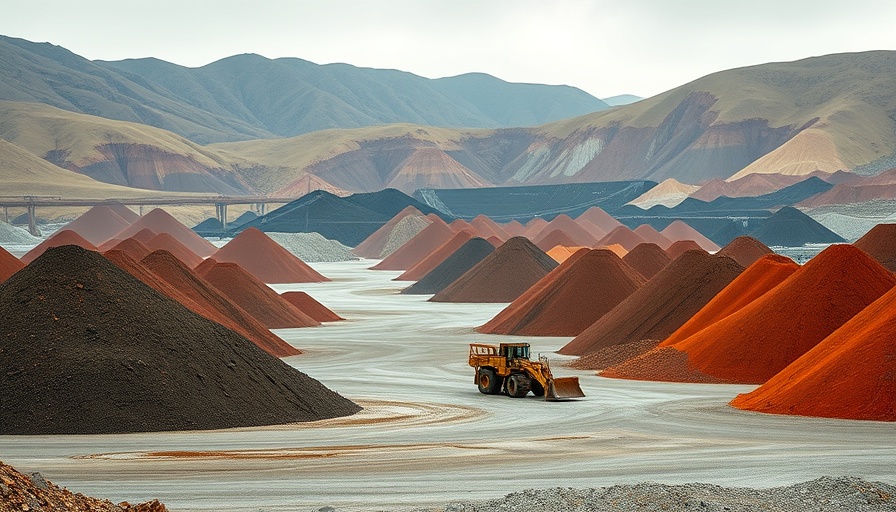
Understanding the Ripple Effects of China’s Rare Earths Controls on Global Auto Industry
In today’s interconnected global economy, few elements are as crucial yet overlooked as rare earth minerals. Recently, China’s decision to impose stringent controls on rare earths has sent tremors across multiple industries, particularly the automotive sector. With manufacturers increasingly reliant on these materials for electric vehicle (EV) batteries and other automotive applications, there’s growing concern about potential shortages and even factory shutdowns.
What Are Rare Earths and Why Are They Important?
Rare earth elements (REEs), which include 17 minerals, are vital for numerous high-tech and clean energy products. These elements are extensively used in the manufacture of electric motors, battery systems, and other critical auto components. In fact, electric vehicles (EVs) now represent a significant share of the auto market. As demand for EVs accelerates, so does the necessity for a steady supply of these resources.
The Impact of China’s Supply Controls on the Auto Industry
China dominates the global supply chain for rare earths, producing about 60% of the world's output. The recent restrictions have prompted fears of a cascading effect, causing automakers to reevaluate their production strategies. Major car manufacturers, especially those leading the charge in electric vehicle production, are bracing themselves for potential shortages that could disrupt production lines. This is particularly alarming given that many automakers have committed to transitioning their fleets to electric models as part of corporate sustainability goals.
A Paradox: The Push for Sustainable Practices Amid Supply Chain Vulnerabilities
Amidst the urgency for sustainability in business practices, the auto industry's reliance on a concentrated supply chain poses a paradox. As firms race to reduce carbon footprints by producing electric vehicles, they are simultaneously vulnerable to external pressures like those posed by supply controls. This tension raises questions about how sustainable business practices intersect with operational realities in a fluctuating market.
Diverse Perspectives: Voices from the Automotive Sector
Industry experts have expressed varied views regarding the implications of China’s controls. Some foresee a pivot towards alternative suppliers, including domestic sources or other nations rich in rare earth minerals, which may catalyze shifts in trade patterns. Conversely, some analysts caution that transitioning away from China’s supply could entail lengthy and costly adjustments. The differing viewpoints underscore the complexities of navigating global supply chains amid geopolitical uncertainties.
Proactive Strategies: What Can the Auto Industry Do?
Auto manufacturers are advised to adopt proactive strategies to mitigate the risks associated with rare earths supply disruptions. This includes diversifying their supply bases by sourcing materials from multiple countries, investing in recycling technologies for rare earths, and actively engaging in R&D for alternatives to current materials. Such measures can help ensure resilience against future supply chain shocks while positioning companies as leaders in the shift towards sustainability.
Future Predictions: What Lies Ahead for the Auto Industry?
Looking ahead, the global auto industry may witness a significant reconfiguration in response to these supply pressures. Analysts predict that firms positioning themselves with robust, diversified supply chains will gain a competitive edge. Meanwhile, those who continue to rely heavily on a single source like China might face mounting operational risks and market volatility.
In conclusion, as China tightens its grip on rare earth supply, the ramifications for the automotive sector are profound and far-reaching. It poses a critical juncture for manufacturers to reassess their strategies, strengthen their supply chains, and pursue alternative materials to remain competitive in an evolving landscape. The evolving dynamics of this sector underscore the importance of agility and foresight in navigating the complex interplay of sustainability, technological advancement, and global trade.
If you’re interested in learning more about how the automotive industry is adapting to these challenges, consider following key industry updates, investment insights, and market trends impacting the Bay Area's startup ecosystem.
 Add Row
Add Row  Add
Add 



Write A Comment